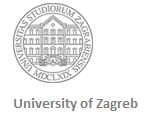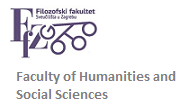Home » KNJIŽEVNI SEMINARI – 4. ili 6. semestar (Page 2)
Category Archives: KNJIŽEVNI SEMINARI – 4. ili 6. semestar
Shakespeare (Brlek)
Course title: Shakespeare Instructor: Asst. Prof. Tomislav Brlek ECTS credits: 6 Language: English Duration: Semester 4 to 6 Status: elective Enrolment requirements: completed Introduction to English Lit/Introduction to English Lit 1 and 2 The course is designed as an analysis of William Shakespeare’s works in the light of the fact that they were written for theatre […]
African American Literature: 1800-Present
Course title: African American Literature: 1800-Present Instructor: Prof. Mark Metzler Sawin, PhD (visiting scholar) ECTS credits: 6 Language: English Duration: Semester 4, 6 summer – CONDENSED COURSE, March-April 2017 Status: elective Enrolment requirements: completed Introduction to English Lit/Introduction to English Lit 1 and 2 ____________________________________________________________________________________ download syllabus (.PDF) COURSE DESCRIPTION & OBJECTIVES: In the first […]
Ethics and Aesthetics of British Modernism (archive 16/17)
Naziv kolegija: Ethics and Aesthetics of British Modernism Instructor: Asst. Prof. Martina Domines Veliki 8/10 semester 2016/17 (or 4./6. semestar) Language: English 1 semester, summer Status: izborni Oblik nastave: 1 sat predavanja i 2 sat seminara tjedno Uvjeti: Upisan 8./10. semestar Ispit: Kontinuirano praćenje. Tijekom seminara studenti/ce trebaju izraditi jedan seminarski rad te ga prezentirati […]
British Romanticism: prose (archive)
Course title: British Romanticism: prose Instructor: Martina Domines Veliki, PhD ECTS credits: 6 Language: English Duration: 4th or 6th, 8th or 10th semester in ac. year 2016/17 4th or 6th semester Status: elective Course type: 1 hour of lecture, 2 hours of seminar Enrollment requirements: enrollment in the 4th or 6th, 8th or 10th semester […]
American Poetry From the Beginnings to the Twentieth Century
Professor Russell ReisingOffice B-008Office hours: from March 3, Thursday 14:00-15:00, Friday 12:00-13:00Email: russreising@gmail.comPhone: 99 7952930 (Not after 10 PM or before 9 AM!)All poems indicated are easily available online. Use links I have provided when possible. March 3-4Introduction and business TEACHING STRATEGIES AND COURSE POLICIES/COURSE EXPECTATIONS:I approach my literature course with two primary goals: to […]
Victorian novel: Poetics and Politics
Course title: The Victorian Novel. Poetics and Politics (Former title of the course: Victorian novel – poetics and cultural politics) Instructor: Professor Tatjana Jukić ECTS credits: 6 Language: English Semester: 3 or 5 Enrollment requirements: Introduction to the Study of English Literature 1 and 2 Course description: The course attempts to describe and analyze the […]
American Modernism
Instructor: Hrvoje Tutek Subject: American Literature Course title: American Modernism ECTS credits: 6 Language: English Duration: 1 semester, 4th or 6th Status: elective in undergraduate programme Form of Instruction: Prerequisites: enrolled in fourth or sixth semester Examination: Regular attendance, active participation , one written paper (5-6) pages and written final exam. READINGS: F.S. Fitzgerald: The […]
Early English Literature
Course Title: Early English LiteratureNastavnik: Vladimir BrljakECTS bodovi: 6 bodovaJezik: engleskiStatus: izborni kolegijTrajanje: 1 semestar (2. ili 4. semestar)Oblik nastave: 1 sat predavanja i 2 sata seminara tjednoUvjeti za upis kolegija: položen Uvod u studij engleske književnostiOpis kolegija: Kolegij daje pregled engleske književnosti od sedmog do sedamnaestog stoljeća, s posebnim naglaskom na sadržaje koji nisu […]
American postmodernism and popular culture
Course title: American Postmodernism and Popular Culture Instructor: Asst. Prof. Sven Cvek, Hrvoje Tutek ECTS credits: 6 Status: elective Semester: 2nd or 3rd year of undergraduate studies Enrollment requirements: student must be registered in the 3rd semester Course description: This course centers on some crucial aspects of US postmodernism, such as a transforming relationship between […]
British Romanticism: prose (archive)
Course title: British Romanticism: prose Instructor: Martina Domines Veliki, PhD ECTS credits: 6 Language: English Duration: 4th or 6th semester Status: elective Course type: 1 hour of lecture, 2 hours of seminar Prerequisites: Introduction to English Literature Course description: This module aims to engage students at a high level of scholarly rigour with the key […]
Contemporary Canadian Literature in English
Course title: Contemporary Canadian Literature in English Instructor: Assoc. Prof. Vanja Polić ECTS credits: 6 Language: English Duration: 4th or 6th semester Status: elective Enrolment requirements: completed Introduction to English literature, enrolment in the 4th or 6th semester Course description: The starting point for the course is the genre of the cowboy western and the […]
Cool Britannia? British drama in the period 1956 – 2008
Course title: Cool Britannia? British drama in the period 1956 – 2008 Instructor: Dr. Tihana Klepač, Assoc. Prof. ECTS credits: 6 Language: English Status: elective Enrolment requirements: enrolment in 4th or 6th semester Course requirements: continuous assessment; regular attendance, work in class, 1 written assignment, mid-term and end-term exam. Course description: An overview of British […]
History of English Drama from Mass to City Play (summer semester)
Course: History of English Drama from Mass to City Play (2P/1S, 6 ECTS)Status: electiveTeacher: Tamara Petrić, assist.Semester: Fall term 2012/ 2013Lecture and seminaraLanguage: EnglishThe final grade in this course will depend on the following considerations: (1) a short essay/ term paper; (2) regular attendance and active participation; and (3) two exams.Objectives.: The purpose of this […]
Shakespeare
Course title: ShakespeareInstructor: Prof. Janja Ciglar-Žanić.ECTS credits: 6.Status: elective.Semester: 4th or 6th semester.Enrollment requirements: completed 3rd or 5th semester.Course description: The course will be concerned with a selected number of Shakespeare’s plays viewed in the light of new theories of literature and culture. A study of the new strategies of reading, developed in the last […]
The American Bildungsroman of the 19th and the 20th Century
Course title: The American Bildungsroman of the 19th and the 20th Century Instructor: Assoc. Prof. Jelena Šesnić Spring 2012/13, 2018/19 BA program Course description: Bildungsroman as a genre addresses the process of the acquisition of social and cultural identity taking as its representative figure the bourgeois subject in the making. Another significant fault line operating […]



